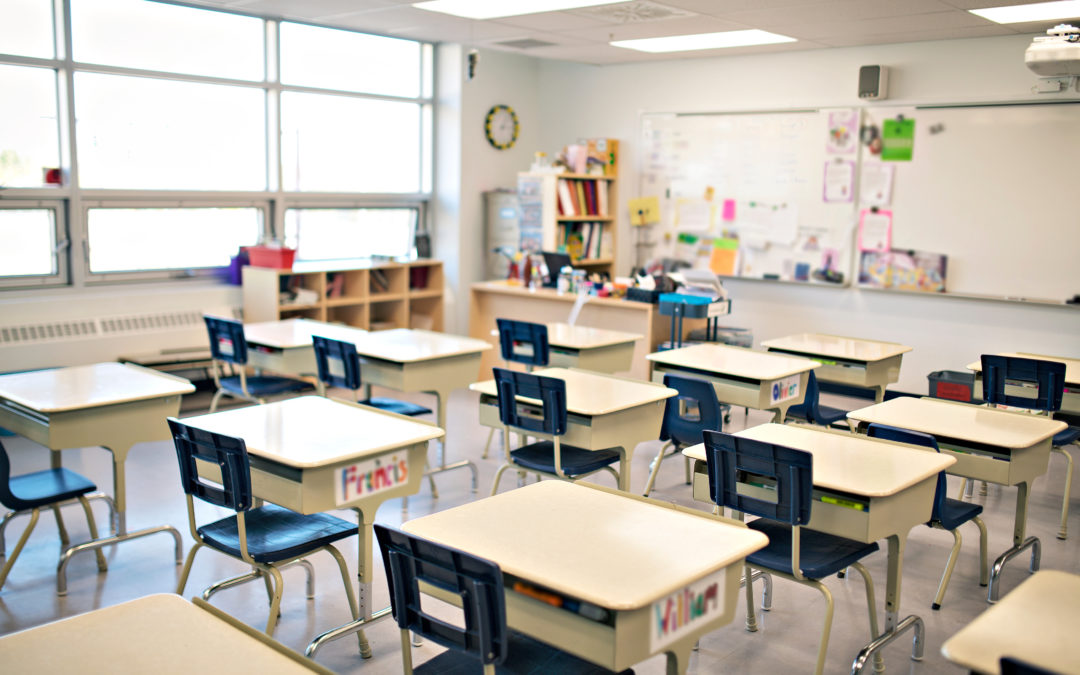During the 2021-2022 school year, the Office for Civil Rights (OCR) opened an investigation into Forsyth County Schools following a complaint that the district discriminated against students on the basis of sex, race, color, and national origin.
Forsyth County Schools had received a complaint from a parent group over books the group believed contained sexually explicit material. Soon after, the school began receiving complaints from other parents regarding books that discussed LGBTQ+ issues. Parents suggested the district shelve those books separately, placing tags to identify them, or create a system for parents to prohibit their students from checking out specific books, specifically those that focus on LGBTQ+ issues. The District Media Committee rejected both suggestions, stating that implementing those restrictions may increase isolation and bullying, and could result in students avoiding the library altogether. Furthermore, the district believed that implementing a system where students were prohibited from checking out certain books would force the media specialists to become “gatekeepers” of the books.
While the committee rejected the suggestions regarding books with LGBTQ+ content, the Superintendent did authorize staff to review and pull books that included explicit sexual content. Ultimately, the staff permanently removed eight books, temporarily removed two books, and restricted four books to high school libraries. Despite the permanent removal of eight books, many parents continued to call for the removal of even more, some of which focused on gender identity or sexual orientation.
At a board meeting following the removal, multiple students pointed out that the district was banning books largely written by women of color, or those that focused on LGBTQ+ issues. For example, one of the banned books “All Boys Aren’t Blue” by George M. Johnson focuses on Johnson’s childhood and adolescence as a gay Black man. The students argued that banning books, specifically books that are written by or have characters who are members of a minority community, was reflective of the District’s lack of commitment to diversity and highlighting minority voices. The students further told the Board that removal of books such as “All Boys Aren’t Blue” or “Juliet Takes a Breath,” which focuses on a Puerto Rican American who comes out to her family, ostracizes students who are part of marginalized communities that felt represented and understood by those books, making the school environment harsher for those students.
Following the February board meeting, the district formed a summer review committee where 34 readers would review the books up for permanent removal. The committee was required to look at the book’s content and manner of presentation, whether the book was age appropriate, sophistication level, whether it met the students’ instructional, social, emotional, and personal needs, whether it exhibited a high degree of potential user appeal and interest, and whether it provided a global perspective and promoted diversity by including materials about and by authors or illustrators of all cultures. Ultimately, the committee decided to return seven of the eight books to the shelves. Since the reinstatement of seven of the books, there have been no more formal complaints filed regarding book removal.
In a letter addressed to the Superintendent following the investigation, OCR stated that the district’s removal of titles with Black and LGBTQ+ characters may have created a “hostile environment” for students, potentially violating their civil rights. Specifically, OCR’s concern stemmed from the fact that the district received notice that the screening process created a hostile environment for students, but the District’s “responsive steps related to the book screening process were not designed to, and were insufficient to, ameliorate any resultant racially and sexually hostile environment.” While OCR acknowledged that the District strives to provide resources for all students within the community, it noted that the board meetings “conveyed the impression that books were being screened to exclude diverse authors and characters, including people who are LGBTQI+ and authors who are not white.” OCR also noted that district witnesses reported that despite students verbalizing their fears, the district did not take steps to address the impact of the book removals with students. Thus, OCR concluded that the District’s lack of response could have created a hostile environment that the district failed to ameliorate.
The District ultimately signed a Resolution Agreement intended to resolve the issues identified by OCR. The resolution agreement requires the district to administer a school climate survey to address prevalence of harassment and the student’s perception of harassment. Additionally, the district must post a statement that provides students with information including why certain books were removed, an acknowledgement that the environment surrounding book removal may impact students, and instructions on how to file a complaint about discrimination.
The District’s willingness to agree to the Resolution Agreement was applauded by the Assistant Secretary for Civil Rights who thanked the district for assessing and responding to the needs of students who felt as if they were subjected to a hostile environment, and for agreeing to “take appropriate action regarding acts of harassment that create a hostile environment based on sex, race, color or national origin.”
What does this mean for your district?
Requests for and debates over book bans have resurfaced in recent years. OCR made it clear in this decision that the impact of district actions is just as important as the intent behind them, so while Forsyth County may have had good intentions, it was the impact of the acts that created the potentially hostile environment. Districts should consider in advance of the potential impact that could occur when creating book committees and policies regarding removal of books.



